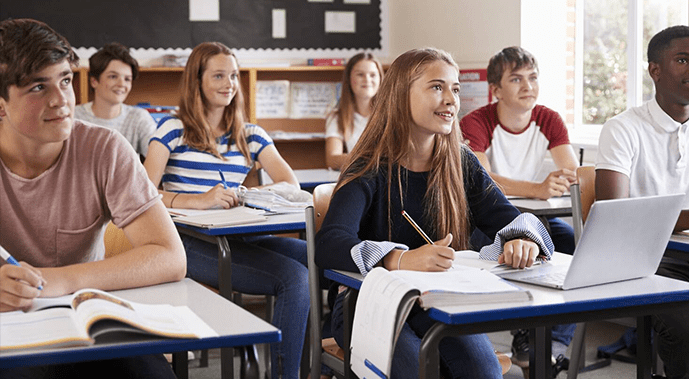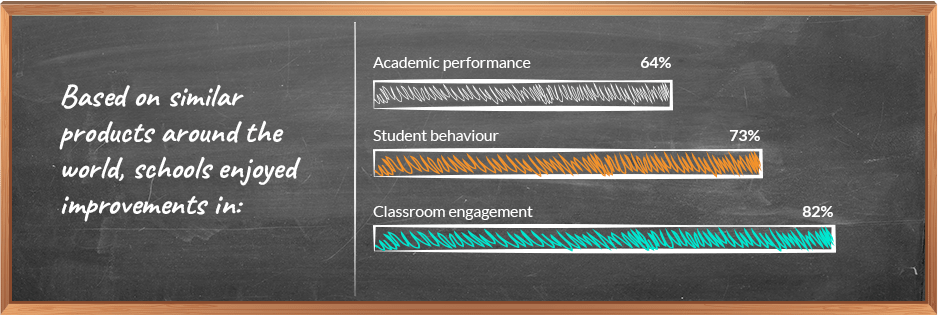Australia Bans Mobile Phones in Class
Australia Bans Mobile Phones in Class
In a move to improve learning outcomes and reduce distractions, Australia has announced a ban on the use of mobile phones in classrooms, with the exception of the Australian Capital Territory (ACT).
The policy, which was announced by Queensland Education Minister Grace Grace, applies to all state schools in Australia, and will come into effect in term one of next year.
Non-state schools have the discretion to decide and implement their own policies.
Key Takeaways
- All Australian states have implemented a ban on mobile phones in schools, except for the Australian Capital Territory (ACT).
- The ban aims to improve learning outcomes and reduce distractions caused by mobile phone use in schools.
- The ban requires students to keep their phones away for the entire school day but allows them to bring them for contacting parents or carers before or after school hours.
- Private schools in Australia have also implemented bans on mobile phone use to reduce distractions, tackle cyberbullying, and improve learning outcomes.
Australia mobile phone ban
In Australia, a ban on mobile phones in class has been implemented across all states, except for the Australian Capital Territory (ACT). The ban was announced by the Queensland Education Minister, Grace Grace, after meeting with education ministers from around the country. The main purpose of the ban is to improve learning outcomes and reduce distractions caused by mobile phone use. Schools in all states, including private schools, must adhere to the ban.
The ban has caused a range of reactions from parents, students, and schools. Parents have expressed their concerns about how the ban will affect their children’s safety and ability to communicate with them in an emergency.
Some students are not happy with the ban, as it restricts their access to electronic devices during school hours. Schools are tackling the challenge of enforcing the ban and ensuring that students comply with the rules.
The ban has had a significant impact on classroom dynamics. With phones off-limits, students must now focus on the task at hand, which can improve concentration and learning outcomes.
Additionally, teachers have the opportunity to create a more collaborative learning environment. Alternatives for communication are also available, such as school email systems or internal messaging apps.

Implementation in Queensland
Implementation of the mobile phone ban in Queensland is set to take effect in term one of 2021. The new ban will enforce a blanket ban on mobile phone use in all Queensland state schools, while non-state schools will have the discretion to decide and implement their own policies. 95% of state schools in Queensland already have policies in place that prohibit the use of mobile phones during class times. The ban aims to improve educational outcomes and reduce distractions caused by mobile phone use in schools.
A review conducted by former Queensland Family and Child Commissioner Cheryl Vardon recommended the ban on phones and certain wearable devices during school hours. This will require students to keep their phones away for the entire school day, but they can still bring them to contact parents or carers before or after school hours. Private schools have the discretion to decide and implement their own policies regarding mobile phone use.
There are also options of phone pouches such as phonelocker pouch.
The impact of the ban on student behavior and teaching is still unknown. However, the policy has been met with both support and criticism from parents. The government has urged parents to take advantage of the new rules and ensure their children are using their phones responsibly and not excessively. The ban is expected to have a significant impact on the learning outcomes for students and the enforcement of the policy will be monitored by the Department of Education.
Other States' Bans
Building on the implementation of the mobile phone ban in Queensland, other Australian states have also implemented their own bans on phone use in public schools. Victoria, Western Australia, Tasmania, the Northern Territory, and South Australia all adopted similar policies in 2020 and 2021 respectively.
Parental concerns and opinions of the ban vary, but many acknowledge the potential impact on student behavior of limiting phone use during school hours. Other countries, such as France, have implemented similar bans with varying effectiveness. Alternatives to banning phones, such as education on responsible use, were considered but ultimately deemed insufficient.
Potential challenges in enforcing the ban, like student compliance and teacher monitoring, will need to be addressed. The ban in private schools, however, is left to the discretion of individual schools. Though the approach may differ from state to state, the goal is the same: to improve learning outcomes and student safety.
Private Schools
While state schools in Australia have implemented blanket bans on mobile phone use, private schools have the discretion to decide and implement their own policies regarding mobile phone use.
Some private schools, like SCEGGS Darlinghurst in Sydney, have implemented bans on mobile phone use with the intention of reducing distractions, tackling cyberbullying, and improving learning outcomes.
Private schools may also consider the use of mobile phones for educational benefits under certain conditions. The enforcement of the policy may vary from school to school, as parental communication is encouraged to ensure successful implementation.
Students may be able to use their phones for safety while travelling to and from school, or for emergency communication with parents. In addition, schools can approve exemptions in exceptional circumstances.
Through this, private schools aim to improve student engagement and create a conducive learning environment, while still allowing for necessary student communication.

ACT Exemption
Few Australian jurisdictions have implemented a ban on mobile phones as strictly as the other states. The ACT is the only one to not impose a blanket ban. Education Minister Yvette Berry has stated that there are no plans to introduce a ban in the territory. Instead, the ACT focuses on helping students understand appropriate behavior both online and offline.
The ACT may have alternative strategies to address distractions and inappropriate use of mobile phones in schools. Exemptions to the ban can be granted for health conditions, learning difficulties, language translation, or personal circumstances. Private schools also have the discretion to decide and implement their own policies regarding mobile phone use. This may include permitting personal device use in certain learning circumstances.
The ACT’s approach to mobile phone use in schools may differ from other states and territories. However, the overall goal remains the same: to reduce distractions and improve student learning outcomes.
Reasons for Banning
The main reasons for banning mobile phones in schools are to create a conducive learning environment, ensure student safety and well-being, limit the negative impact from inappropriate use, reduce distractions in classrooms, and encourage quality time away from screens during breaks.
The ban aims to reduce the impact of mobile phones on student learning and address parental concerns about inappropriate use. It also seeks to enforce and monitor the ban in order to ensure compliance by students.
Reactions to the ban and student adjustments have been varied. While some students are supportive of the ban and its aims, others have expressed concerns about the difficulty of adhering to the rules. Schools have provided alternatives to mobile phone use, such as laptops and tablets, to help students adjust to the new policy.
Exemptions
Individuals may be granted exemptions from the mobile phone ban in Australian schools in exceptional circumstances. Exemptions can be approved for health conditions, learning difficulties, language translation, or personal circumstances. Schools have the discretion to decide their own exemption process and may consider the use of mobile phones for educational purposes under certain conditions. However, smart watches, tablets, and other personal devices are also included in the ban.
The detailed information on how and when exemptions may be granted is available from the school directly. In some cases, the school may also permit personal device use in certain learning circumstances. However, this is subject to individual school policies and must be approved by the school prior to use.
Start Date
Following the implementation of the mobile phone ban in Australian schools, the start date for the ban was set for term three of the academic year. All schools had to align their policies to the state-wide ban. This included storage of phones during school hours, consequences for non-compliance, and teacher-permitted use or exemptions.
Students were still able to bring their phones for safety while traveling to and from school. Resources were available for safe and responsible use of devices, and the Department for Social Services Raising Children website provided information on safe technology use for different age groups.
Communication during school hours should be through the school’s formal communication channels, and contact the school directly for exemptions or specific questions. Mobile phone safety was also encouraged, with more information provided for students, teachers, and families.
This start date of the ban marked the beginning of a new era in Australian education, with implications for individuals and schools still to be explored.
Implications
It is clear that the ban on mobile phones in Australian schools has implications for both students and schools. School policies have been updated to include storage of phones during school hours, consequences for non-compliance, and teacher-permitted use or exemptions.
Students are still allowed to bring their phones for safety while traveling to and from school. Additionally, more information on mobile phone safety is available for students, teachers, and families.
Communication with students during school hours must use the school’s formal communication channels. Detailed information on how and when exemptions may be granted for health conditions, learning difficulties, language translation, or personal circumstances is also available.
Resources for safe and responsible use of devices are available, and the Department for Social Services Raising Children website provides information on safe technology use for different age groups.
For general questions or concerns, contact the mobile phone policy helpline. Individuals can also contact the school directly for exemptions or specific questions about policy implementation.
The Australian Capital Territory (ACT) is the only jurisdiction that does not have a blanket ban, and it focuses on helping students understand appropriate behaviour both online and offline.

Unlock Concentration and Elevate Learning with the Phonelocker Pouch
In a world where mobile phones can be a constant source of distraction in the classroom, we introduce the Phonelocker Pouch – a thoughtful solution designed to create a secure and controlled environment for mobile phone storage, aligning perfectly with the educational reforms discussed in the article.
- Secure and Controlled Environment:The Phonelocker Pouch provides a dedicated space to tuck away mobile phones during class, fostering an environment where learning takes center stage.
- Promotes Mindful Usage:With the Phonelocker Pouch, students are encouraged to engage with their studies more attentively, free from the allure of their devices.
- Prevents Tampering:Our pouch features a clever locking clip mechanism, consisting of two arms that pivot and securely enclose the phone, ensuring that it stays protected and undisturbed.
Features:
- Locking Clip Mechanism:Our pouch boasts a unique design with a locking clip mechanism, incorporating two pivotable arms that tightly seal your phone inside, offering a tamper-proof solution.
- Opening for Insertion/Removal:The pouch body comes with a practical opening between opposing top ends, allowing for easy insertion and removal of your mobile phone. Convenience meets focus.
- Pouch Body:Crafted from durable fabric, the Phonelocker Pouch is built to endure the daily challenges of school life, mirroring the commitment to improved learning outcomes discussed in the article.
- Padded Interior:To protect your device further, our pouch features a padded interior to shield your phone from minor bumps and scratches.
- Lightweight:Designed to be lightweight, the Phonelocker Pouch is effortless to carry and store, aligning with the aim of reduced distractions and improved academic performance in schools.
Materials:
Our Phonelocker Pouch is fashioned from robust, long-lasting fabric, underscoring our commitment to creating a solution that mirrors the durability of the education system. The padded interior adds an extra layer of protection to your mobile phone, just as we aim to shield your learning environment from distractions.
Embrace the opportunity to enhance concentration, reduce distractions, and boost learning outcomes. The Phonelocker Pouch is your ally in the quest for an engaged and focused classroom.
Join the movement for a more distraction-free learning environment. Order your Phonelocker Pouch today, and together, let’s unlock a new era of education.
Frequently Asked Questions
No, mobile phones are not allowed during school hours. However, parents can still contact their children remotely via other approved methods. Schools should ensure students have the necessary digital literacy and phone etiquette skills to use mobile phones responsibly. Additionally, schools are encouraged to implement parental control measures.
Yes, there are exceptions to the ban such as parental control, digital literacy, student privacy, age restrictions, and responsible use. Schools can grant exemptions in exceptional circumstances and individual schools may permit personal device use in certain learning circumstances.
The policy enforcement of the mobile phone ban varies from school to school; consequences may include disciplinary action, parental contact, and even suspension. Schools should provide social media guidance, parent support, and distraction management to ensure students’ safety and wellbeing.
Yes, resources are available to help students use their devices responsibly. Parents and teachers can access resources to promote digital literacy, device etiquette, parental guidance, device safety, and acceptable usage. These resources can help ensure students use their mobile phones and other devices in an appropriate manner.
The ban applies to all mobile phones, smart watches, and tablets, but some schools may consider the use of certain digital devices for educational purposes. Solutions such as screen time limits, digital literacy, educational apps, and parent involvement can be explored to minimize distractions and encourage safe device use.
Conclusion
Australia’s nationwide mobile phone ban will come into effect in Queensland in Term 1 of 2021 and is expected to be adopted in other states and territories.
Private schools have the discretion to decide and implement their own policies.
The ban aims to reduce distractions and improve learning outcomes.
Exemptions may be made in specific circumstances, such as for those with a disability.
The implications of the ban are yet to be seen, but it is hoped that it will lead to an improved learning environment and better academic outcomes for students.


